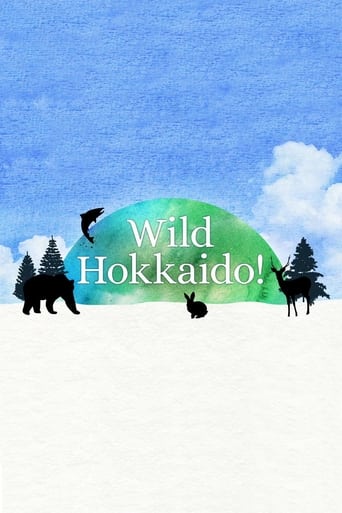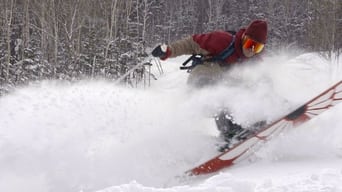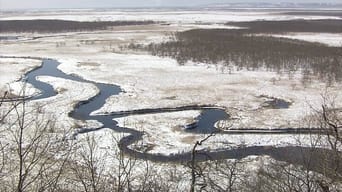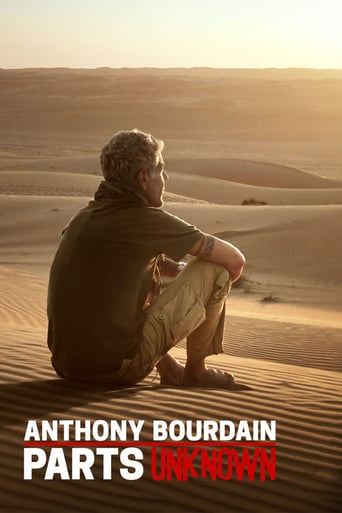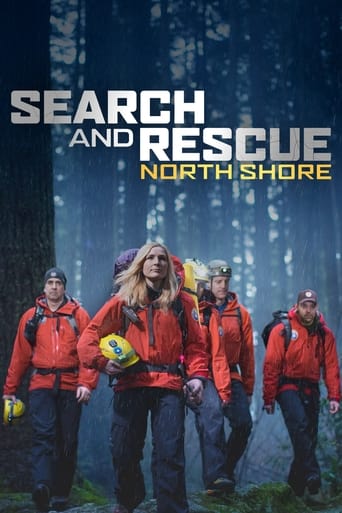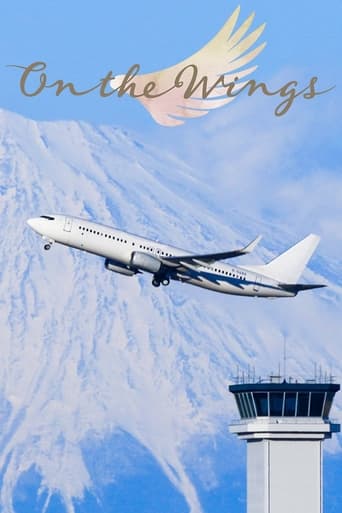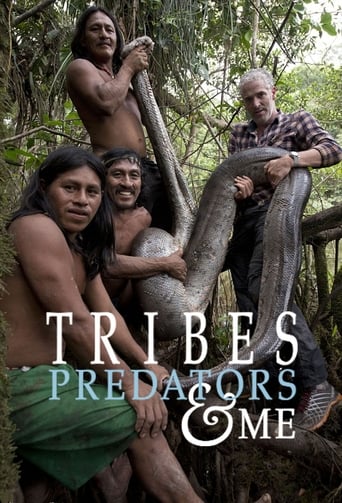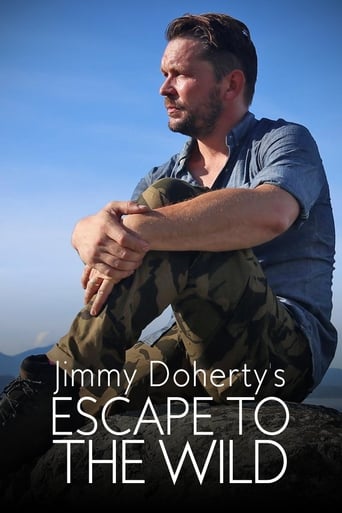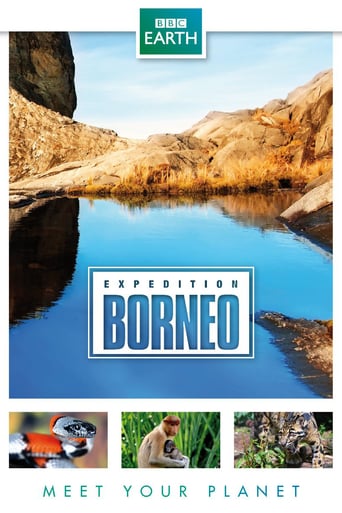Wild Hokkaido! Season 3
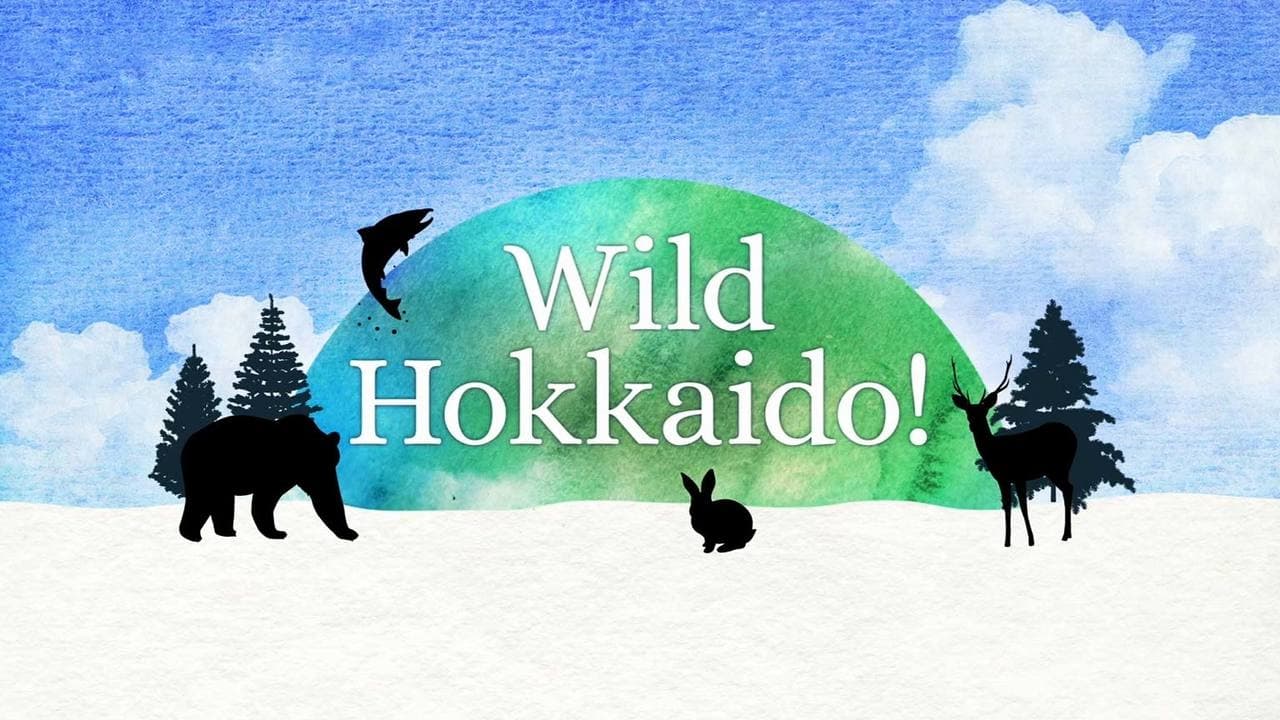
Be immersed in nature's beauty. Discover Hokkaido at its wildest and best as our presenter guides you through its amazing experiences.
Watch NowWith 30 Day Free Trial!
Wild Hokkaido!
2017 / NR
Be immersed in nature's beauty. Discover Hokkaido at its wildest and best as our presenter guides you through its amazing experiences.
Watch Trailer
Wild Hokkaido! Season 3 Full Episode Guide
Our stage this time is Lake Mashu, a caldera lake and its surrounds in eastern Hokkaido Prefecture. Our program host climbs Mt. Mashudake near the lake. On his way to the summit of the mountain, he comes across some summertime alpine flowers. After walking for about 4 hours, he finally reaches the summit, where a superb view overlooking Lake Mashu spreads out before his eyes. Later, we show you rare footage of a variety of creatures that survive in the plentiful spring water in the forest surrounding Lake Mashu.
Our stage this time is Yufutsu Plain in the southwestern part of Hokkaido Prefecture, facing the Pacific Ocean. Our program host visits the Bibi River that runs near the international airport, and takes a guided canoe ride. There, he sees a blooming plant that grows only in pristine waters, then has a taste of a berry that grows in limited areas including the Yufutsu Plain. Later, we show you footage of the ecology of numerous wild birds that live here to breed.
Our stage this time is the Niseko area at the base of the Niseko mountain range, located in western Hokkaido Prefecture. Tourists from all over the world visit here, which is home to a variety of activities during summer, not only during winter. Our program host joins a mountain bike tour to explore Niseko's grand nature. Also, he visits a roadside rest area that sells fresh local produce, and a ski area to take in the amazing views. Later, we show you footage of some creatures such as aquatic insects that inhabit a marsh in the mountains.
Our stage this time is Lake Kussharo in the eastern part of Hokkaido Prefecture, which is about a one-and-a-half-hour drive from Kushiro Airport. This is Japan's largest caldera lake, and our program host tries his hand at fly-fishing for the first time to catch White-spotted Char and other fish. We show you how his first attempt turns out to be, as well as footage of insects, fish, and animals that get active in and around the lake.
Our stage this time is Mt. Apoidake, located on the southern side of the Hidaka mountain range that stretches north to south in central Hokkaido Prefecture. The mountain is unique in that it's entirely made of peridotites formed when tectonic plates bump against each other, pushing the earth's mantle out and over the surface of the earth. Our program host climbs to the summit of the mountain, enjoying alpine flowers blooming as well as other fascinating nature in early summer. We also show you footage of plants and creatures unique to this mountain, an open-air bath, and a unique menu item at a restaurant in the area.
Skiers and snowboarders from all over the world come in search of Japan's finest snow, Japan Powder Snow, or "Japow" for short. We hope you will thoroughly enjoy this special episode of Wild Hokkaido!, introducing you to "Japow." Our stage this time is Bankei ski area which you can reach in just 20 minutes from the center of Sapporo, the largest city in Hokkaido Prefecture. There, visitors can partake in all kinds of Japow-related activities like playing in the snow as well as professional skiing.
Skiers and snowboarders from all over the world come in search of Japan's finest snow, Japan Powder Snow, or "Japow" for short. We hope you will thoroughly enjoy this special episode of Wild Hokkaido!, introducing you to "Japow." Our stage this time is Tomamu, located in central Hokkaido Prefecture. Here, you can also enjoy a backcountry ski tour by riding up the mountain on a snow tractor to ski down through the powder snow.
Our stage this time is Tokachi Millennium Forest in Shimizu at the foot of the Hidaka Mountains, about an hour's drive from Tokachi-Obihiro Airport. Our program navigator explores the forest with the help of an electric-powered vehicle and enjoys viewing a variety of beautiful wildflowers in the spring forest. At the end of the tour, he encounters a magnificent view only found here in Tokachi. Later, we show you footage of life found stirring in the Tokachi Plain at the beginning of spring.
Our stage this time is Soya Hills in the north of Hokkaido Prefecture, also located to the south of Cape Soya. Our program host takes a walk along the footpath, stretching 11 kilometers from Cape Soya, where wildflowers are blooming. It leads to the white path made of scallop shells. Along the path, he encounters a breathtaking view of lush green fields, blue skies, and sea. Later, we show you some tourist attractions as well as footage of Japanese huchen, the largest freshwater fish in Japan, spawning in the river of Soya Hills.
Our stage this time is Mt. Tomuraushi in the very center of Hokkaido Prefecture. It's considered impassable during the harsh winter months, while the forest at its foot is good for trekking. Our program host, Charlotte Kate Fox, dons snow shoes and treks the forest covered with a blanket of snow. On her way to the waterfall that never freezes even during winter, she also observes snow crystals and bear claw scratches on a tree. In addition, we show you rare footage of Siberian flying squirrels and other animals dwelling in the forest.
Our stage this time is Kushiro Wetland, Japan's largest wetland. Our program host, Charlotte Kate Fox, rides a canoe to explore the river that never freezes even in winter because of the abundant springs. She encounters Japan's largest bird of prey, the Steller's sea eagle, and sees a dynamic view of the frozen lake, where ice cracks have risen up. Additionally, we show you precious footage of red-crowned cranes that live in the wetlands.
Our stage this time is Tokachi Plain in eastern Hokkaido Prefecture. The plain is one of the largest dry-field farming lands in Japan and is covered in snow during the wintertime. Our program host, Charlotte Kate Fox, tries dog sledding for the first time, and races through the snowy landscape pulled by dogs. She also tries famous soba noodles made with buckwheat grown during the season without snow, encounters squirrels in a park, and enjoys the charms of the Tokachi Plain to its fullest. Additionally, we show you valuable footage of animals living in windbreaks.
Lake Shumarinai, located about 200 kilometers north of Sapporo. In this episode, we will introduce you to the wonder that is known as the coldest lake in Japan. Fishing for Japanese smelt is the activity to try when visiting the lake during winter. Our program host will race over the vast snowfields on a snowmobile with a guide, and will open a hole in the ice to catch Japanese smelts. Later, we show you precious footage of creatures living there during severe cold weather.
Our stage this time is Furano, located in central Hokkaido. Furano is not only known as a world-famous skiing destination, but also for its expansive rich forest. In this episode, our program host will explore the winter forest in snowshoes. There he discovers fox and Sika deer footprints, and enjoys teatime in the fluffy snow. Later, we show you amazing footage of frost cracks in tree trunks and the Black Woodpecker, Japan’s largest woodpecker.
Our stage this time is Lake Akan, located in the eastern part of Hokkaido. It is one of the rare lakes in the world where Marimo moss balls can be found. Our program host Charlotte Kate Fox tries trekking around the frozen lake in snowshoes. She enjoys viewing the mountains that surround the vast snowfields and lake, as well as the spectacular sceneries unique to Lake Akan during the winter. In addition, we show you rare footage of the animals that survive the harsh winter and the landscapes created by volcanic activities.
Our stage this time is Lake Mashu in the eastern part of Hokkaido. It has clear blue water and is also known as the mist-shrouded lake. Our program host, Charlotte Kate Fox, treks around the outer rim surrounding the lake and enjoys watching Mountain Birch trees, bent in different shapes due to constant strong winds, and the spectacular view of the lake that emerges from the mist. Later, we show you the footage of the lake surface taken under special permission.
Our stage this time is Lake Shikaribetsu, the highest lake in Hokkaido. It’s located at an altitude of about 800 meters, and signs of winter are already here in November. Charlotte Kate Fox, a program host, takes a stroll around the lake with a camera. She enjoys the beauty and the silence in the woods, shooting the lake that’s starting to freeze and the rocks that are completely covered in a blanket of moss. In addition, we show you the rare footage of Miyabe char, rare species to be found only here, and the icebound lake in winter.
Our stage this time is Lake Kussharo in eastern Hokkaido. It’s said to have formed eons ago as a result of volcanic activity, which remains active even today. Our program host, Charlotte Kate Fox, explores the lake in a canoe and observes white steam rising from the lake's surface. She has eggs boiled in hot spring water and feels the power of the earth. In addition, we show you the footage of Landlocked Sockeye Salmons, swimming upstream for spawning, as well as Whooper Swans, which migrated from colder areas to spend the winter here.
Free Trial Channels
Seasons


